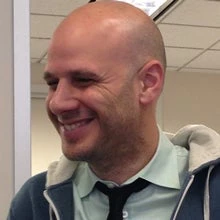Arun Agrawal, of the University of Michigan School of Natural Resources and Environment, is the new editor of the journal World Development. He graciously agreed to continue our series of Q&As with journal editors.
Development Impact: You have taken over recently as editor of World Development. Tell us briefly about your vision for the journal – how do you aim to differentiate World Development from other development journals?
Arun Agrawal: I came to know about World Development as an MBA student at the Indian Institute of Management in Ahmedabad in India. At that time, many of the articles I read in the journal were like opening a different world from the one I inhabited in my everyday live - one of corporate strategy, and sales, and marketing, and finance, and organizational design, and production and so on. That is the world in which our classes immersed us. But I recall feeling a different sense of excitement and of doors opening when reading World Development articles.
So, my vision for the journal is one where the papers we publish will make readers think and imagine new possibilities; where at least some of its pages will help readers capture a similar sense of excitement as I felt when I first came across it. I think the field of development research and practice and implementation and needs again to be able to provoke such excitement. We are no longer in the 1950s when the idea of development carried a different kind of cache than it does now.
I certainly believe that what we write and what we write about should be linguistically and technically competent; but as and perhaps even more important, it should lead to new ways of thinking and imaging the world. I am not sure this will differentiate World Development from other development journals. In fact, I wish all development journals sought to do the same J
DI: You are a political scientist working on environmental issues in developing countries like forest conservation. It would therefore be interesting for our readers to get your perspective on what you see as the positive and negative recent trends in economic research on development issues. Any thoughts you would like to share on this?
AA: It is correct that I trained as a political scientist for my PhD. But I also went to a management school and received an undergraduate degree in history. I have taught in schools of environment and political science departments, and have worked closely with economists, anthropologists, sociologists, historians, natural resource management specialists, and with practitioners. To mention all of this is less to demonstrate any intimate familiarity with the many different sources of knowledge about development processes and outcomes, more to lay a certain claim to openness to different ways of thinking and writing about development.
But before saying anything about what I view as positive/negative recent trends in economic research on development issues, I should add that my perspective is clearly that of an outsider – and I state that not just about my relationship with economics, but perhaps also about my relationship to many different disciplines and modes of thinking. It is not an accident that despite being trained as an historian and as a manager and as a political scientist, I do not teach in a department of political science or history or for that matter a school of management.
So, from this outsider’s point of view, maybe the most important recent trend in economic research on development issues is the widespread use of randomized field trials and a remarkably widespread emphasis on rigorous program evaluation – whether that is accomplished through the use of experimental research designs or through more creative uses of observational data to mimic experimental designs. Many scholars, including a fair number at the World Bank, have written about the extent to which this trend is positive or negative, particularly when it comes to randomized field trials. I am unlikely to add anything new in this forum to the debate.
But I do think, in agreement with one of mentors Elinor Ostrom, that to the extent fallible humans can approach truth they are unlikely to do so by relying on a single method or approach. Let me be clear: My statement is less a criticism of any particular method, more a statement of a general position.
DI: How many submissions does WD receive each year? What percentage do you desk reject vs send to referees? What percentage of papers are turned around within 3 months?
AA: That is an easy one. As the new Editor for World Development, I received those statistics very recently. We received more than 1300 articles last year, and I understand this number has been increasing rapidly since World Development began accepting electronic submission of manuscripts about a year ago. We send about a third of the manuscripts out for review. The initial desk review is completed in less than 3 weeks on average, and I am aiming to get a first decision on papers sent out for review within 15 to 20 weeks from the point of submission of the paper.
DI: World Development has 12 issues per year, which is more than other development journals. How do you maintain quality control with so many issues? An alternative would be to have say only 6 to 8 issues but be more selective on papers. How do you decide the quantity-quality tradeoff?
AA: Probably the right metric for assessing quality control is our rejection rate rather than the number of articles we publish. If we received 300 manuscripts and published 75 of them (roughly what might go into 6 to 8 issues), that may not be a great indictor of quality (other things being equal). But we accept only about 11 percent of the submitted manuscripts, and that proportion might well go down this year. The advice of members of our editorial team and the editorial board are two means to ensure quality. But the biggest quality control mechanism – perhaps one on which all journals rely despite imperfections – is the advice of reviewers. If there is an increase in negative assessment of papers we send out for review, I will not hesitate to publish less.
Notwithstanding what I have said above, it is true that if we substantially reduce the number of papers we publish, we will raise the quality on average. But we will also at the same time provide a more scanty coverage of the different fields World Development covers (we might have the greatest disciplinary and subject breadth among development journals) and be less able to meet the expectations of our current audience which includes substantial numbers of students and practitioners as well as professors and researchers from these different disciplines.





Join the Conversation